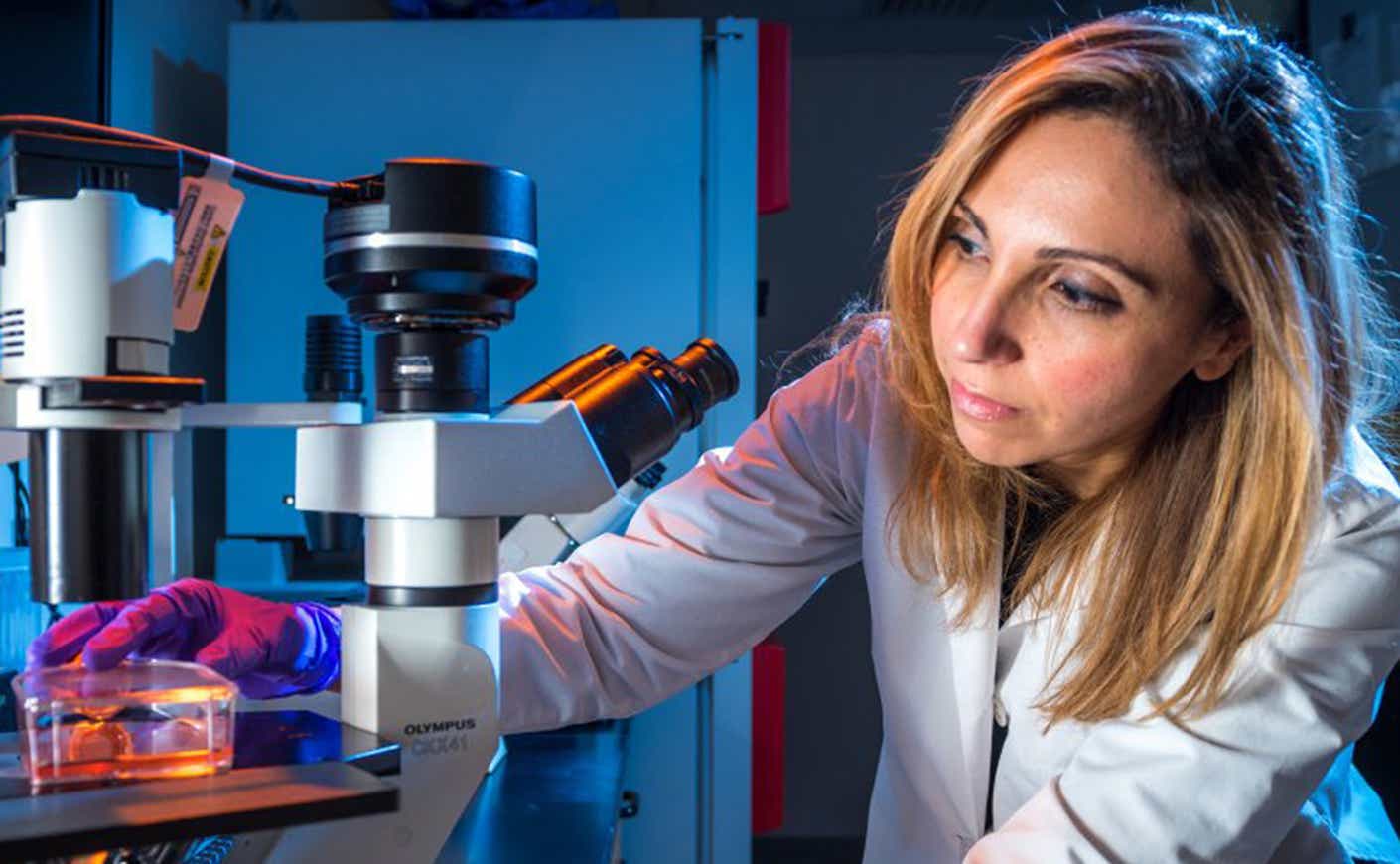What if we got routine screenings for blood cancer the way we do for breast cancer and colon cancer? Dr. Irene Ghobrial, a senior physician at Dana-Farber Cancer Institute and SU2C researcher, says a simple blood test could allow doctors to detect blood cancer, intercept it, and potentially cure the disease.
Through the PROMISE study, Dr. Ghobrial and her team are screening high-risk patients for multiple myeloma, the second most common blood cancer, which sees around 30,000 people diagnosed with it each year. We spoke with Dr. Ghobrial about screening for blood cancer and how her team is now using their research to fight Covid-19.
Wake-Up Call: Why do we not get regularly screened for blood cancer like we do for breast cancer and colon cancer?
Dr. Irene Ghobrial: It’s a great question. In general, cancer screening saves lives, right? So if we screen for every cancer, we could detect it early and prevent it from becoming symptomatic. Other cancers like colon cancer and breast cancer have had many years where people have worked on trying to understand how to screen them. Both of these cancers are harder to screen, because you have to do a colonoscopy or a mammogram. However, blood cancers should be as easy as a blood sample to get the screening done. Multiple myeloma, [a blood cancer], is a very easy disease to detect early on just by blood tests.
What kind of blood cancer is multiple myeloma?
If you think about blood cancer, people often think of leukemia and lymphoma. However, multiple myeloma, although rare, is actually the second most common blood cancer that we have, and it’s the biggest cause of mortality. In multiple myeloma, cancerous plasma cells accumulate in the bone marrow — crowding out the normal plasma cells that help fight infection.
You’re currently involved in the PROMISE study, which is the first study to test healthy people for multiple myeloma.
We know that every single patient diagnosed today with multiple myeloma would have had at least 10 to 15 years with a precursor condition. One of which is called “monoclonal gammopathy of undetermined significance” (MGUS) and the other is smoldering multiple myeloma.
These people don’t even know they have these precursor conditions, because we don’t screen for them. And then they start having symptoms like bone pain, fractures, anemia, kidney failure — and this is when they actually know that they have the disease. If we were able to find these precursor conditions in those 10 or 15 years before they have the symptoms, then you can diagnose it early, intercept it, and potentially cure multiple myeloma through early treatment, rather than waiting for it to grow so much.
So that’s the whole idea for the Promise study. The hope is that we never diagnose anyone with active myeloma again. Right now, we are screening high-risk people, which is really two categories. 1.) Black Americans, because we know that they are two to three times more likely to develop multiple myeloma and 2.) First-degree relatives of someone who was diagnosed with multiple myeloma.
And now, you’re applying your work with the PROMISE study to fight Covid-19. Tell us about the IMPACT study.
When Covid-19 happened, we all stayed at home and said “OK, what can I do to help?” In general, we know that cancer patients are probably at a higher risk because their immune system is lower. So if you think about patients with active multiple myeloma, they are being very careful — they’re taking their medications and they’re staying at home. However, there is a huge number of the population — about 12 million people — that has one of these precursor conditions, and they don’t know about it. They’re walking around thinking they’re healthy, and yet we know from our own data that those with MGUS or smoldering myeloma have an immune system that is not normal.
Today, we’re trying to understand what happens to the immune system in patients with these multiple myeloma precursor conditions who are infected with Covid-19.
How will the IMPACT study help researchers and health care experts who are on the front lines of the pandemic?
Let’s say that the MGUS patients truly have an immune system that is worse compared to a healthy individual. This will allow medical professionals to prioritize those patients. It will provide important information and guidance on how to proceed when treating those with MGUS or smoldering multiple myeloma during the pandemic.
Every day we’re facing the risk of, should I go out to a restaurant or not? Should I go to work or not? I think if you have more information, you’ll be able to think for yourself and for your own family about “what is my personal risk versus others?”
To learn more about the IMPACT study, click here.
Written and reported by Eliza Costas.









